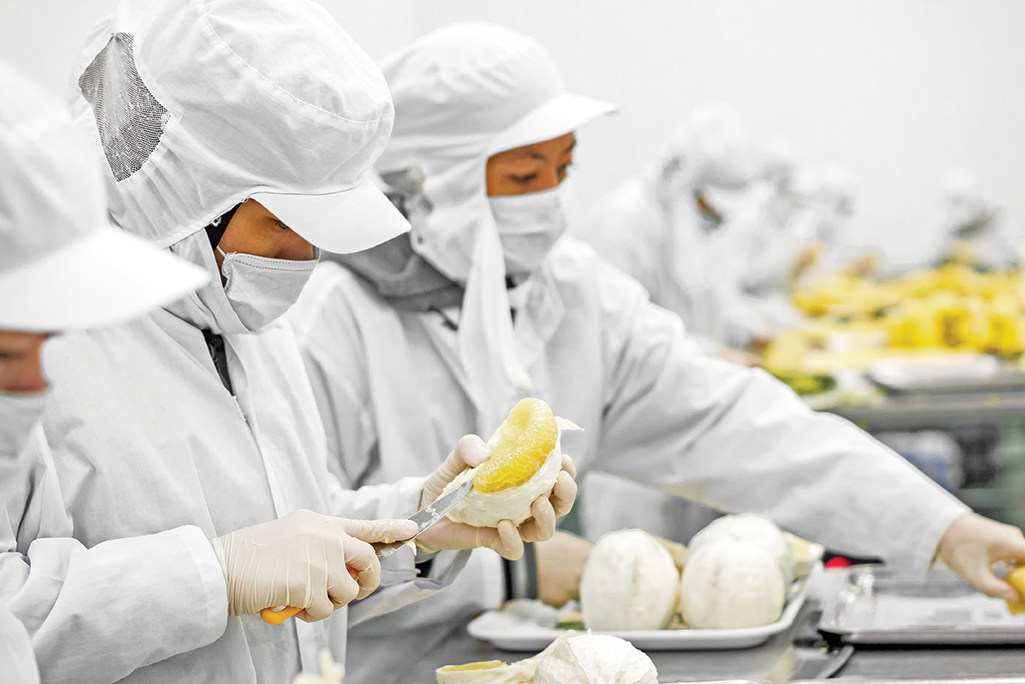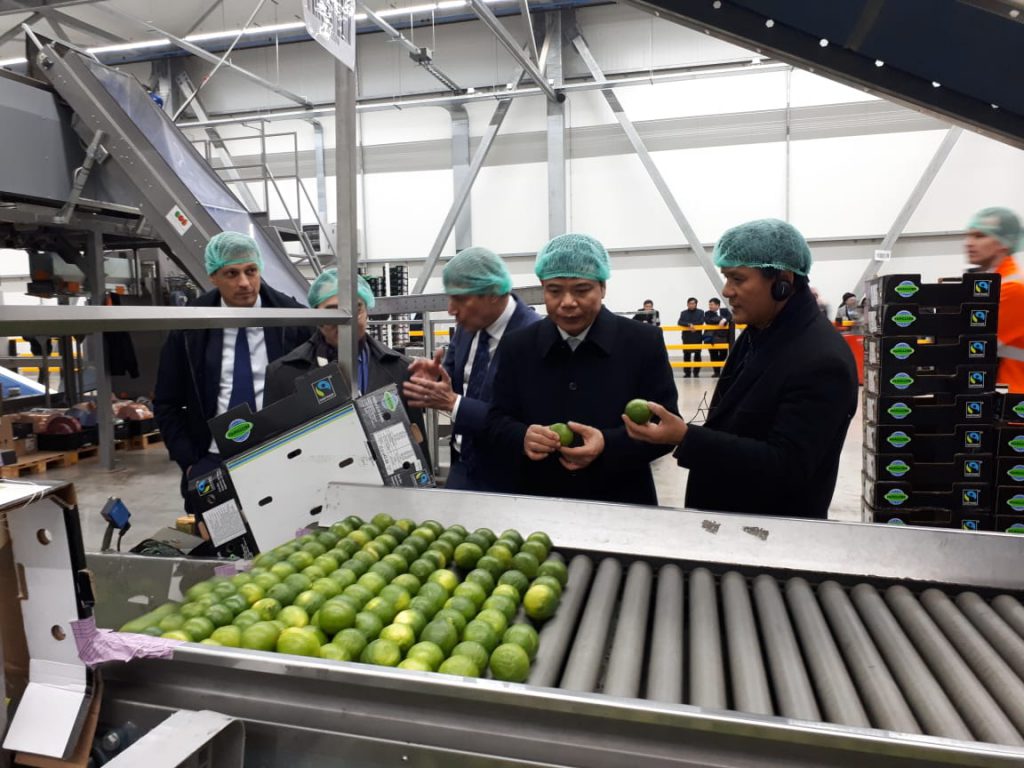Achivments
In 2009 The Fruit Republic, owner of the Mekostar brand, was formed with the mission of letting the world discover the fantastic taste of Vietnamese fruit and vegetables and to make Vietnamese consumers proud of their home-grown produce.
Since 2009 we have been building our reputation as a leading provider of high-quality fruits and vegetables. Increasingly recognized for our ability to meet international standards and our unique year-round programs, The Fruit Republic began building brands to help consumers identify their products in stores. Out of this work, the Mekostar brand was born. The name represents the aims of the brand, to stand for high-quality “star” products coming from local “Meko” production (the brand originated in the Mekong Delta before expanding its operations to Da Lat). Achievements that mark the progress of TFR and Mekostar include:

2009
- The Fruit Republic begins operations in the Mekong Delta, working closely with contract farmers to source fruits for the domestic and export markets.
- The Fruit Republic obtains its GLOBALG.A.P. certification for its pomelo contract farmers
- The Fruit Republic becomes the first fresh produce company of Vietnam to successfully export the Nam Roi pomelo in year-round programs to European supermarket chains

2010
- The brand Mekostar is used for the first time when The Fruit Republic introduces Mekostar pink and honey pomelos at supermarkets and wholesale markets across the country

2011
The Mekostar brand was launched when TFR introduced Mekostar pomelo and green skin at supermarkets and wholesale markets nationwide.
2012
- TFR invests into a state-of-the-art packhouse and high-care fresh cut facility in Can Tho. This is the first complete temperature-controlled fruit packhouse and fresh cut facility in the Mekong Delta
- The high-care fresh cut facility in Can Tho becomes HACCP- certified, making Mekostar’s fresh cut pomelo the first HACCP-certified fresh cut pomelo in Vietnam
- Mekostar implements a successful fresh cut fruit marketing campaign in HCMC supermarkets.

2013
- The Fruit Republic sets up its Da Lat based operations for sourcing vegetables through close cooperation with contract farmers in Lam Dong province.
- The brand Mekostar is launched as a quality mark for fruits and vegetables being sold by The Fruit Republic into the domestic market
- Mekostar successfully implements the first consumer marketing campaigns for Mekostar vegetables in supermarkets in Hanoi
- Mekostar begins supplying leading airlines with a range of fresh fruit for all their departing flights from HCMC Tan Son Nhat International airport
- The Fruit Republic starts to export fresh cut pomelo to various Asian markets by air
- The range of fruits grown under GLOBALG.A.P. certification expands to include seedless lime, dragon fruit and mature brown coconut.

2014
- Mekostar is proud to become the exclusive fresh produce supplier of McDonalds in Vietnam. McDonald’s leadership in food safety and quality is a testament to the great work that Mekostar is doing in delivering high quality produce to consumers.
- Mekostar becomes the first brand in Vietnam to be certified for compliance with the Ethical Trading Initiative’s (ETI) Base Code of labour practice
- The Fruit Republic’s pomelo, lime and coconut become available in every town in Austria and the United Kingdom.
2015
- The Can Tho packhouse and fresh cut facility become BRC certified, grade A, evidence of Mekostar’s ability to provide consumer with fresh food that meets the highest international standards.
- The Fruit Republic is proud to become the exclusive fruit and vegetable supplier of Autogrill in Vietnam. Autogrill manages over 150 restaurants and cafés at all the key airports of Vietnam. All travelers at the airports of Hanoi, Ho Chi Minh City, Danang and Nha Trang can enjoy Mekostar fresh produce in their meals and fresh fruit drinks. Autogrill is a global company with more than 4,000 restaurants and cafés at airports and railway stations, serving annually 900 million travelers.

2016
- Partner farmers provide fruit GLOBALG.A.P. for Mekostar in Can Tho to be GRASP certified, committed to social responsibilities, especially to ensure the rights of employees in the Mekostar value chain.
- Mekostar built a modern greenhouse farm system in Da Lat. In the early stages, greenhouse production was mainly focused on lettuce and herb products.
- Mekostar introduced Vietnam’s first organic lemon product certified by EU Organic to the market, providing more safe fruit choices for consumers.
2017
- A fully temperature-controlled distribution center for Mekostar fruits and vegetables is established in Ha Noi, as Mekostar continues to improve service to its customers nationwide.
- TFR products have become available year-round in Germany, France, England, Poland, Scandinavia, the Netherlands, Belgium, Hong Kong, Singapore, Dubai and Russia.
- Queen Maxima of the Netherlands visits Da Lat to see the greenhouses growing Mekostar’s vegetables.

2018
- Mekostar vegetable cultivation under modern greenhouse farming expands to 5.5 ha with GLOBALG.A.P certified production. The new greenhouse area is used for a full assortment of lettuces, cucumbers, bell peppers and tomatoes.
- A new 2,000 m2 Mekostar packhouse in Da Lat is built and obtains HACCP certification.

2019
- Mekostar celebrates 10 years of providing high quality fruits and vegetables to consumers across Vietnam, while meeting: GLOBALG.A.P., EU Organic, BRC, HACCP, GRASP and ETI certification standards.
- The Fruit Republic successfully enters Australia with a year-round dragon fruit program
- The Fruit Republic opens its own company and distribution center in the Netherlands, used as a gateway to Europe.
- Nguyen Xuan Cuong – Vietnamese Minister of Agriculture and Rural development visit the TFR’s distribution center in the Rotterdam harbor, Netherlands.

2020 and beyond
- In recognition of 10 years of achievements, Mekostar gets a new look, a new website and relaunches its Facebook page.
- Mekostar GlobalGAP certified greenhouse vegetable production will reach 10 hectares within the 2020-2021 period. Resulting in 3,000 tons of top-quality fresh produce per year.
- TFR expands its packhouse in Can Tho with a 2nd packhouse, which brings an additional 3,000 m2 of temperature-controlled space to process fruits from the Mekong Delta

